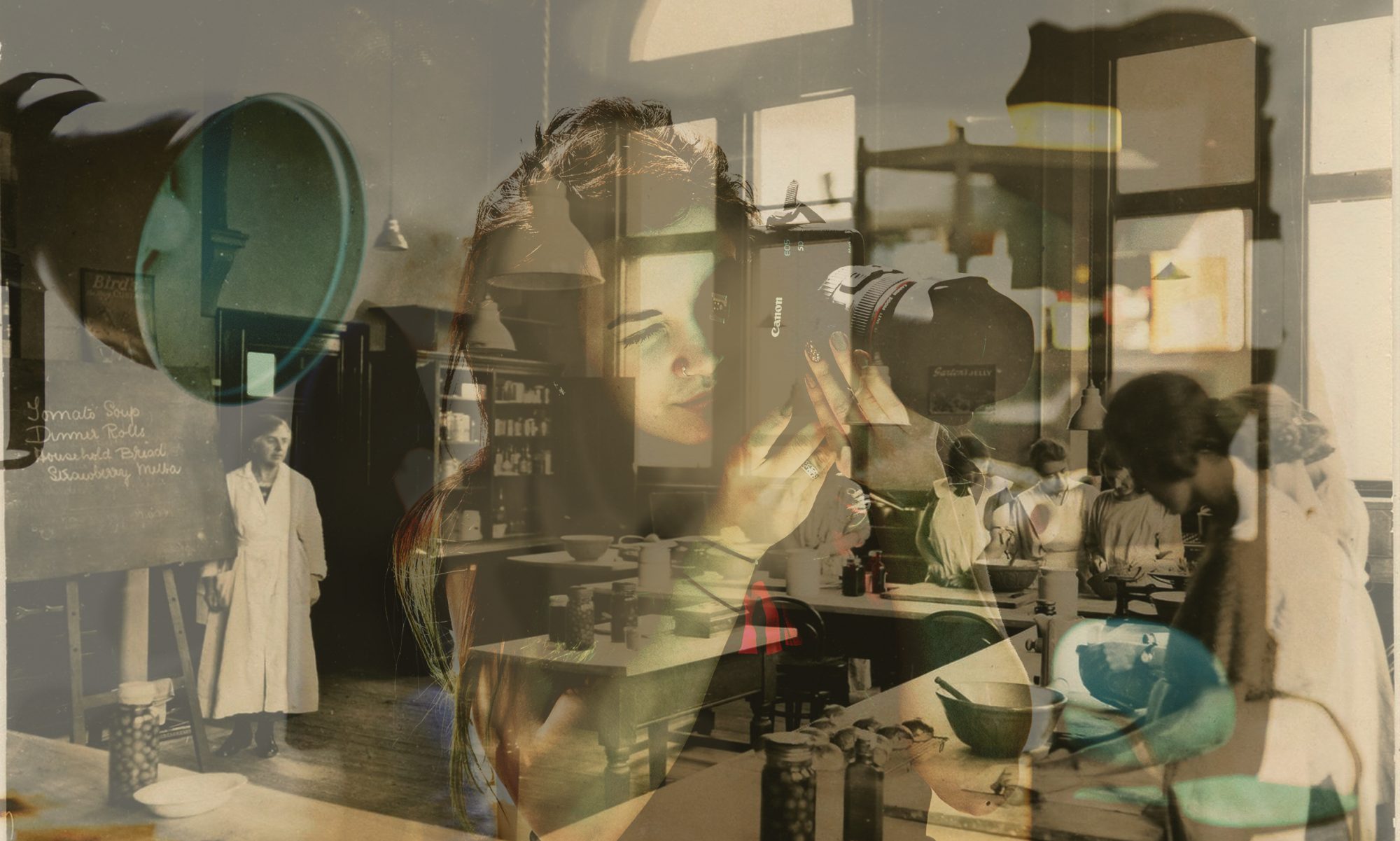Hi Rowan! Tell us a little more about yourself
My name is Rowan, I am 23. I grew up mostly in South West Wales, but my family moved around a lot while I was growing up, so it’s been nice to have spent three years living in one place and getting to know Manchester and Salford as cities. I study BA (Hons) Fine Art and I am now in my final year. In my first year I lived at Peel Park Quarter and got the full on-campus experience, but I have since moved into a shared house in Rusholme with some friends.
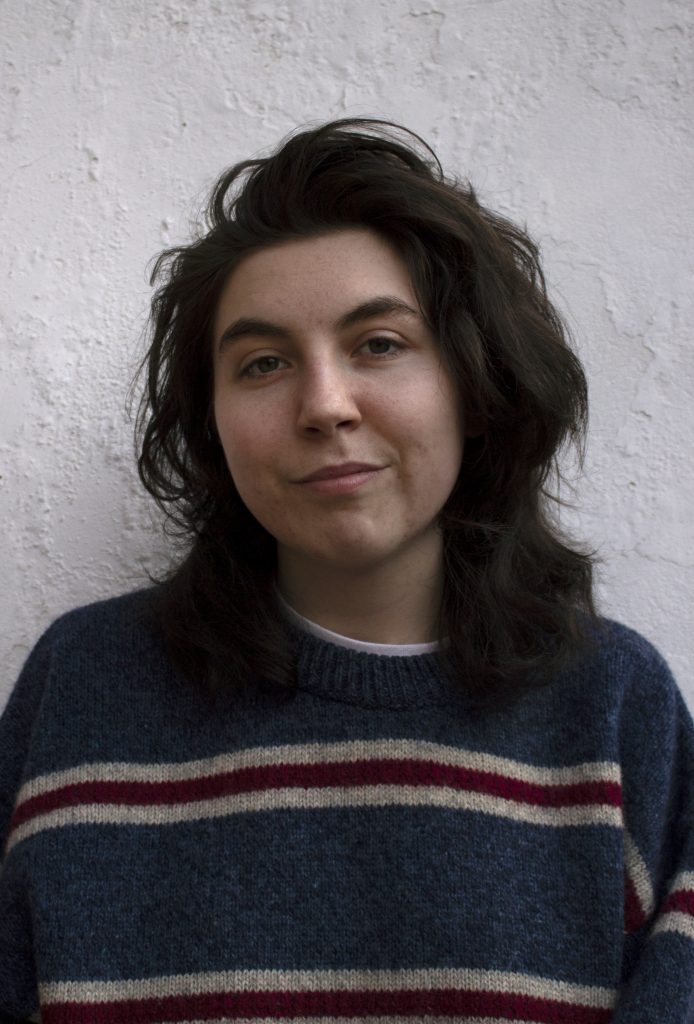
Can you tell us more about your course? Any particular modules you have enjoyed?
I have really enjoyed my course so far and I can’t believe it’s almost over! The course is rooted in studio practice- making art in the studios, and there is a lot of freedom within that to really explore different ways of making work. Each term there is also a theoretical/academic module that runs alongside the studio practice to support your practice, and this became one of my favourite parts of the course. After I finished my A Levels, I wasn’t sure I ever wanted to write another essay again, but there is so much flexibility in what you can choose to research and write about, and the lectures cover so many different topics, that writing the essays became something I really enjoyed. So much so, that I went from dropping A Level English, to writing a first-class dissertation. The support of the lecturing staff, and the extra opportunities to improve your academic writing with Wordscope, really helped me to reach my full potential and to really explore topics I was passionate about.
Some of my favourite modules however were the professional practice modules in second year. Something that really attracted me to coming to Salford were the professionalising opportunities you have access to, and the professional practice modules really give you a chance to gain real world connections and professional experiences. For me, I chose to be a part of the gallery group and put on a physical exhibition outside of uni. We spent the best part of two terms researching, organizing, and planning our physical show, however shortly after booking the venue, we went into lockdown and we could no longer go ahead with our plans. I really didn’t want this to be the end of the experience however, so instead I decided to host an online open call through my Instagram. Over the course of a month, I received over 100 submissions from all over the world, and I curated an online exhibition featuring the work of 17 artists. It was a really exciting experience, and I was able to put all the skills I have learnt throughout my time at Salford to use, and really showed me what I am capable of achieving. I am still incredibly proud of this accomplishment!
Why did you choose to study at Salford?
I really wasn’t sure where I wanted to go to university when I was applying, and I didn’t have many opportunities to go to open days or anything- so the first time I was able to visit Salford was actually the day of my interview. At the other interviews I had been to it felt quite intimidating and competitive, people trying to psych each other out before they went in for the interviews and things like that! Salford really stood out in comparison, Brendan and David were lovely, they offered us biscuits, and showed us around and made us feel completely at home! I was there by myself, and everyone was so friendly, and I felt straight away that I fit in. I remember riding up in the lift after we had seen all the incredible print room facilities and 3D workshops, and Brendan asked if anyone had any questions. I remember everyone stayed silent until someone else’s dad said ‘I think everyone is just blown away,’ and that was exactly how I felt. I knew on the train home that Salford was the University for me.
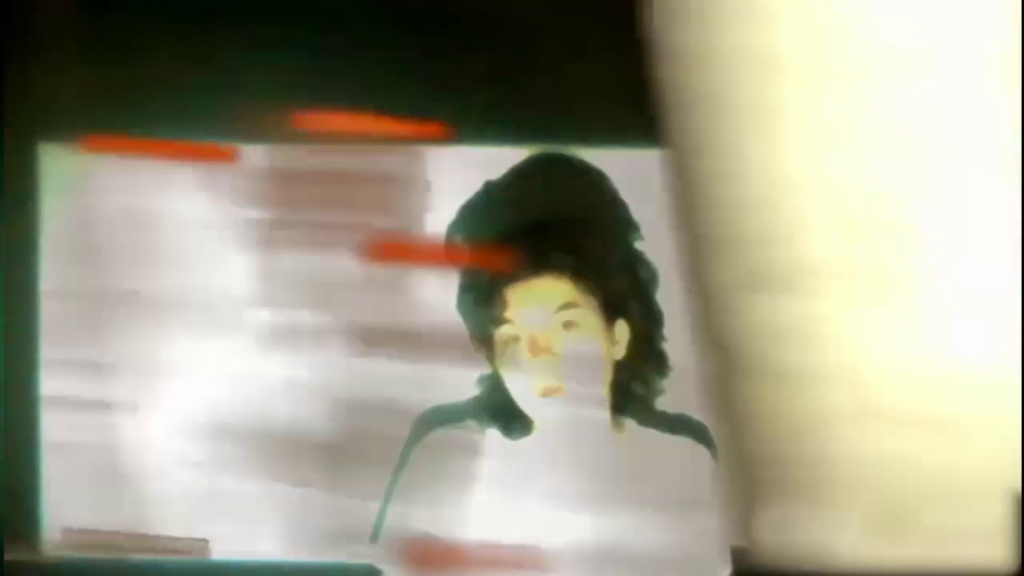
Where did you hear about the course?
I remember looking online! Visiting for my interview however completely confirmed for me that Salford was the university I wanted to go to. The campus and the facilities speak for themselves, and I think it’s important to get a sense of the university beforehand- A course can be perfect on paper but when you are there you realize it’s just not for you.
Would you recommend your course to others?
Absolutely. This course has been so incredibly instrumental in helping me to realize all the things I am capable of and helping me reach my full potential. I have learnt so much about myself and what it is I am passionate about through this course.
Do you find lecturers are supportive? How have you found academic teaching?
The lecturers really want you to succeed, they really want to help you to achieve everything you can. The encouraging and supportive environment at Salford has really made my university experience a great one. Obviously, no one could have expected how COVID-19 would impact every aspect of life, but the staff team have made the transitions between distance and in person teaching much easier – and on a personal note they have been incredibly understanding about my limitations and anxieties as the situation has changed through the year.
Can you tell me about some of the facilities you use on campus? (pre COVID-19)
The studios are a big part of the Fine Art experience, they become your second home in a lot of ways and it is great to work in such a vibrant space. Throughout the year as people’s work develops, the space transforms and it’s a really exciting thing to be a part of. A lot of my work is digital however, so I also found myself making the most of the Mac Suits in the New Adelphi building, and the fully kitted specialist equipment store. These resources have been invaluable to me, as it can be quite expensive to make high-quality artwork, but being able to access all the latest software, and industry standard equipment has enabled me to really make my work be the best it can be.
In first year, everyone gets comprehensive introductions to all the workshops and facilities at the University, and one of the things I loved the most about this, was the way we are encouraged to think creatively about how these facilities can be used within our practices. As a fine art student, you are encouraged to make the most of what is available to you, and that can mean using the laser cutter to make artwork on ham or use the 3D printer to print a surface that can be inked up and put through the printing press. If you have an idea, the staff team will help you work out the best way of achieving it and you really can take your practice in any direction you want.
Where are you usually taught? What opportunities are there to collab with others? (pre COVID-19)
The New Adelphi building is the home of the Fine Art course. Just a stone’s throw from the Salford Crescent train station, up on the 6th floor (with the best views) are the Fine Art studios. The studios are a really collaborative space and this fosters a community environment. Collaboration is encouraged throughout the fine art course, from dedicated days like Program Day and Curious Campus where everyone is encouraged to share ideas and make connections, down to more personal projects which might develop further outside of university. For example, Lauren Chapman, fellow Fine Art student, and I have worked collaboratively on some music and video pieces that started as ideas in the studio but have really come to life since then.
The New Adelphi building however really is a creative hub, as the site of the school of arts and media, you meet more than just your course mates, and I have friends who do fashion, photography, and journalism – so you often find yourself working with people on quite different projects all together!
Where do you see yourself when you graduate?
When I started at University, I knew I really enjoyed art, but I don’t think I ever imagined a career as an artist as a realistic possibility. Over the three years I have spent at Salford, however, the course really prepares you for life after university through professionalising opportunities, artist talks, and modules like Exit Velocity that help you to prepare for what it is you want to do after graduation. I feel now that I have a much better understanding of the realities and what it means to be a working artist. I have also been able to access so many opportunities that have helped me build up my CV, build a professional network, and given me invaluable real-world experience. Looking at other recent graduates and having opportunities to speak with them about their journeys since graduating Salford, such as Mollie Balshaw and Rebekah Beasley the Directors of short supply and Artist Sade Mica, I hope to follow in their trail-blazing footsteps and really utilize everything I have learnt during my time at Salford to carve out a successful career for myself in the arts.
Would you consider studying a masters at Salford?
I definitely would – Salford offers some really exciting and more specified masters courses such as Socially Engaged Arts Practice, and Alumni discount that makes studying a masters much more accessible.
Tell us about some guest speakers you may have heard from as part of your course
Artist Talks are one of my favourite parts of the fine art course. They give a really personal insight into the inner workings of an artist’s practice and the realities of being a working artist today. Just a few of the speakers I’ve from as part of the fine art course include, London based Artist Brian Cyril Griffiths, musician and artist Ruby Tingle, and director of the Whitworth and Manchester Art Gallery Alistair Hudson.
Some of my favourite talks we have had during my time on the course however have been those from Salford Fine Art Alumni, as these really showcase the amazing talent this course has produced. Just a few of these include Katie McGuire introducing her contemporary sculpture practice, Jane Lawson who discussed her journey from Salford degree show to exhibiting artist and key team member at Castlefield Gallery, Sarah Hardacre presenting her collage practice, Alena Ruth Donely on her rug making practice and experience as British Council Fellow at the Venice Biennale, and multidisciplinary art Sade Mica who introduced their exciting practice and exhibition history. Seeing and hearing about the different paths these artists have taken from being since graduating Salford, really exemplifies the way Salford is a stepping stone to success, and as someone who soon is also going to be a Salford Graduate, I find these talks incredibly inspiring.
Tell us more about yourself as an artist
I would describe my artist practice as multidisciplinary. I often incorporate elements of video, photography, performance, and collage into my work; more recently however I’ve also been working with newer technology such as Artificial Intelligence and 3D modelling. I really enjoy exploring the different ways these technologies can be incorporated into my fine art practice, especially as the way we engage with and experience art has changed so much during the COVID-19 pandemic. For example, one of my most recent pieces I developed is an entirely virtual environment that can be explored but only accessed via the internet. The piece can be found at http://latentspace.site/.
My work is often centred around my queerness, exploring the interactions between queer identity, achieves, politics, and popular culture. My most recent work focuses on the positive potential of queerness.
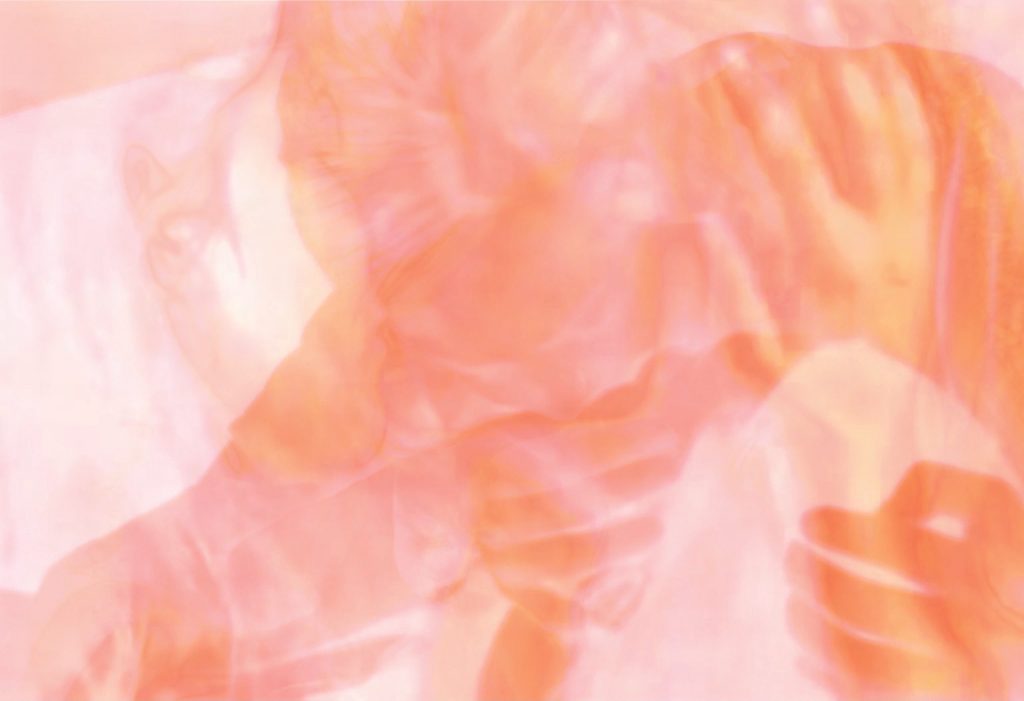
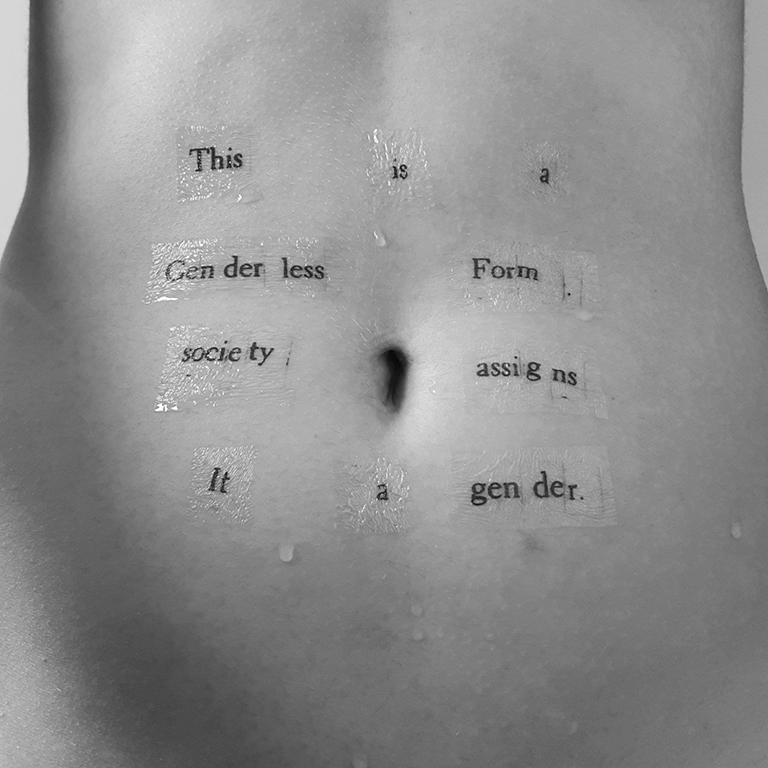
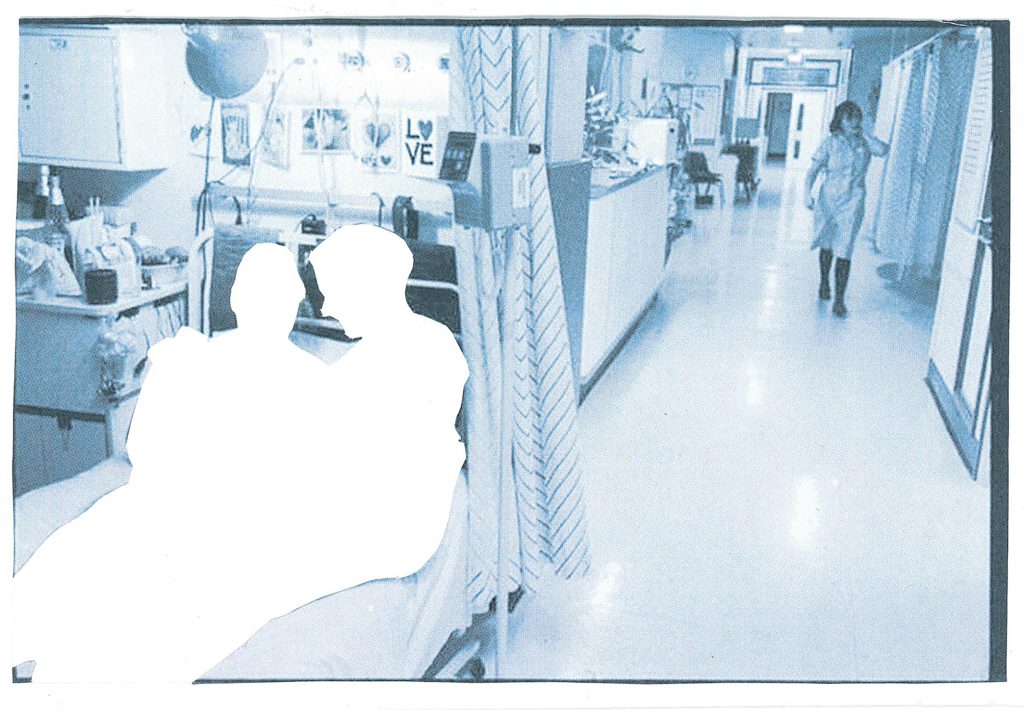
Who inspires you? What are your influences? What medium do you usually use?
I really draw a lot of my inspiration from theory, reading cultural and Marxist queer theory is often a starting point for my ideas. I am also inspired by the world around us, the way we interact and consume imagery and information every day, and how those things influence our lives.
I often look to other artists as a source of inspiration, photographers like Nan Goldin, Peter Hujar, Wolfgang Tillmans, Zanele Muholi, film-makers like Derek Jarman. I am really inspired by Danielle Braithwaite-Shirley and the way she makes video game art works.
I often use video footage as the starting point for my work, even if the work then gets developed into something quite different. For my work with Artificial Intelligence, I often use found footage and footage from popular culture.
How has Salford encouraged your creator practice?
Studying at Salford has really given me the resources and the support to be creative and take creative risks within my work. I think something Salford really encourages, and something that has been important in my development as an artist has been learning not to shy away from things just because initially, they seem daunting, or you may not know exactly how to do them. Some of my best work has come from trying something that initially felt challenging, and seeing where that process took me.
Having the space, the facilities, and the support to try new things, explore new techniques, and experiment is something that I’ve come to really understand the value of during my time at Salford.
Are there any particular favourite galleries/art spaces which you would recommend in Manchester and Salford?
Manchester and Salford have a really buzzing art scene that is totally worth throwing yourself into! West Art Collective was founded by former Salford Fine Art Students and they throw amazing art events at Antwerp Mansion (Covid permitting!). In Salford there’s some amazing artist lead spaces including Paradise Works and Islington Mill that are always worth keeping an eye on! On Mirabel Street near Victoria Station you can find Soft Spot, Ps. Mirabel and Paper Gallery, and they always through really exciting openings where you can start to meet new people and forge connections. Home is one of my personal favourites because of the variety of events they put on – especially the films! Short Supply are recent Salford Fine Art Graduates, and they are making waves with their artist lead program, and they often have amazing exhibitions and opportunities. There is always something going on in Manchester and Salford are worth keeping an eye on social medias is the best way to stay up to date with the latest!
Any online events / activities you would recommend for artists during lockdown?
The Holden Gallery here in Manchester has been putting out some really engaging content during Lockdown, including hosting site specific artworks on their Instagram stories. Caustic Coastal is another gallery that has adapted interestingly to lockdown- moving from their physical space in Salford to an entirely virtual set up. I’ve also been really making the most of online artist talks over the past year- it’s always worth tracking what your favourite artists are up to and seeing if they have any talks coming up! In general, seeing how artists have adapted to making work and sharing work on digital platforms has been really interesting! The level 5 Salford Fine Art students, for example, have been producing an amazing online exhibition and zine over on @rethink.refund.reboot on Instagram that is definitely worth keeping an eye on.
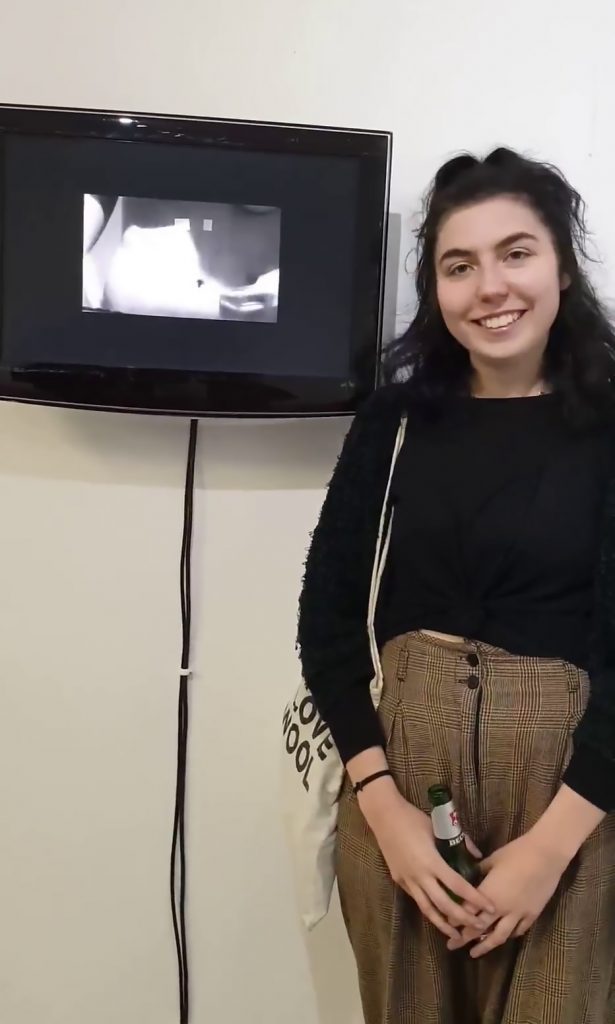
Tell us about your most recent exhibition
Most recently my collage series ‘Who Matters’ has been included in Creatures Magazine’s third issue.
One of the best things about being based in Salford and Manchester is the really exciting community of artists, opportunities for collaboration stem further than just the University, and being able to work with MMU students and other artists across the two cities is really exciting. Recently some of my AI work exploring queer comfort and intimacy featured in a physical zine by MMU student Ash Taylor. Some of this AI work was also included in the Salford LGBT+ History Month Digital Exhibition in February.
I also recently had an amazing experience working with Manchester based curatorial platform PROFORMA, and the arts organization Broken Grey Wires, in partnership with HOME gallery in Manchester and the Live Art Development Agency, to develop a short film exploring the relationship between queer culture and mental health as part of a workshop series. This film was showcased through the PROFORMA and Broken Grey Wires platforms back in November and can now be viewed below.
Are you involved in any projects outside of university? Tell us about them
Over the course of the last month, I’ve been working on some collaborative art work for The X Collab. As collaboration has been limited due to the COVID-19 pandemic, it’s been a really fantastic opportunity to meet and work with other creative students from across the UK. I am really looking forwards to seeing the work exhibited in both an online exhibition and in a physical publication soon.
How can we keep in touch?
Over the last year social media and online platforms have become so important in how we connect! Over only Instagram I post regular updates with what I am working on and involved with- so if you are interested in seeing what I am up to give me a follow @rt.pritchard. My linktree also includes links to everything I’ve been working on lately so you can check out everything I have been up to!
